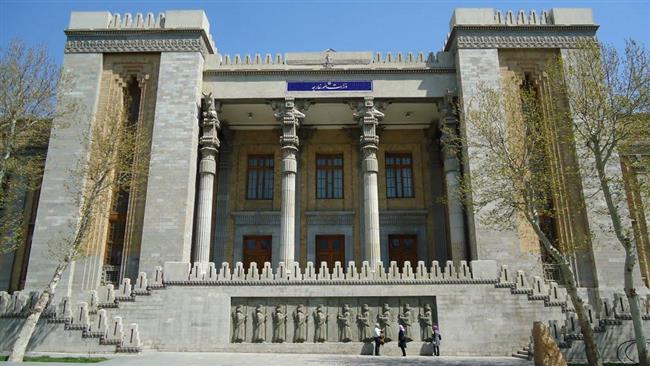
RNA - On Wednesday, US President Donald Trump signed into law the bill that targets Iran with new bans over its national missile program. The new legislation had already passed both the US House of Representatives and Senate with overwhelming support.
Iran’s Foreign Ministry spokesman Bahram Qassemi said on Thursday that the sanctions’ approval was a “retrogressive, illegitimate, illogical move, which runs contrary to all human rights principles and international regulations.”
This is the latest example of “hostility towards the civilized Iranian people and an insult to all freedom-seeking people in the world,” Qassemi pointed out. The “hawks, extremist elements and ill-wishers” ruling the US had once again demonstrated their “unilateralism and illogical enmity” towards Iran, he said.
Touching on the recent session of the Iranian committee for monitoring the implementation of the nuclear deal, officially called the Joint Comprehensive Plan of Action (JCPOA), Qassemi said, Iran “won’t remain silent in the face of the JCPOA violation and will soon announce a range of countermeasures by the Majlis (parliament) and Iran’s administration.”
Iran is determined to keep up its fight against terrorism as well as its efforts to restore stability and calm to the region, Qassemi said, adding that the Islamic Republic will never allow others to advance their “expansionist and destabilizing policies” in the region.
The Islamic Republic “reserves the right to respond to the US government’s anti-Iran moves” and, will take the necessary countermeasures in due time “in line with people’s interests and national security.”
The Iranian foreign ministry spokesman further advised American officials to stay focused on resolving their country’s domestic crises instead of spreading Iranophobia.
Separately, Iranian Deputy Foreign Minister for Legal and International Affairs Abbas Araghchi described Trumps’ approval of the new anti-Iran sanctions as an attempt to destroy the nuclear deal, saying “We will react very intelligently to these measures.”
The JCPOA was inked between Iran and the P5+1 countries — namely the US, Russia, China, France, Britain, and Germany — in July 2015 and took effect in January 2016.
Under the deal, which was later endorsed by a United Nations Security Council resolution, limits were put on Iran’s nuclear activities in exchange for the removal of all nuclear-related bans imposed on the Islamic Republic, among other things.
The UN nuclear watchdog has invariably certified Iran’s commitment to its obligations under the accord.
On the contrary, the Trump administration, which took over in January 2017, one year after the JCPOA came into force, has taken a hostile stance toward the deal, repeatedly threatening to tear it up.
847/940